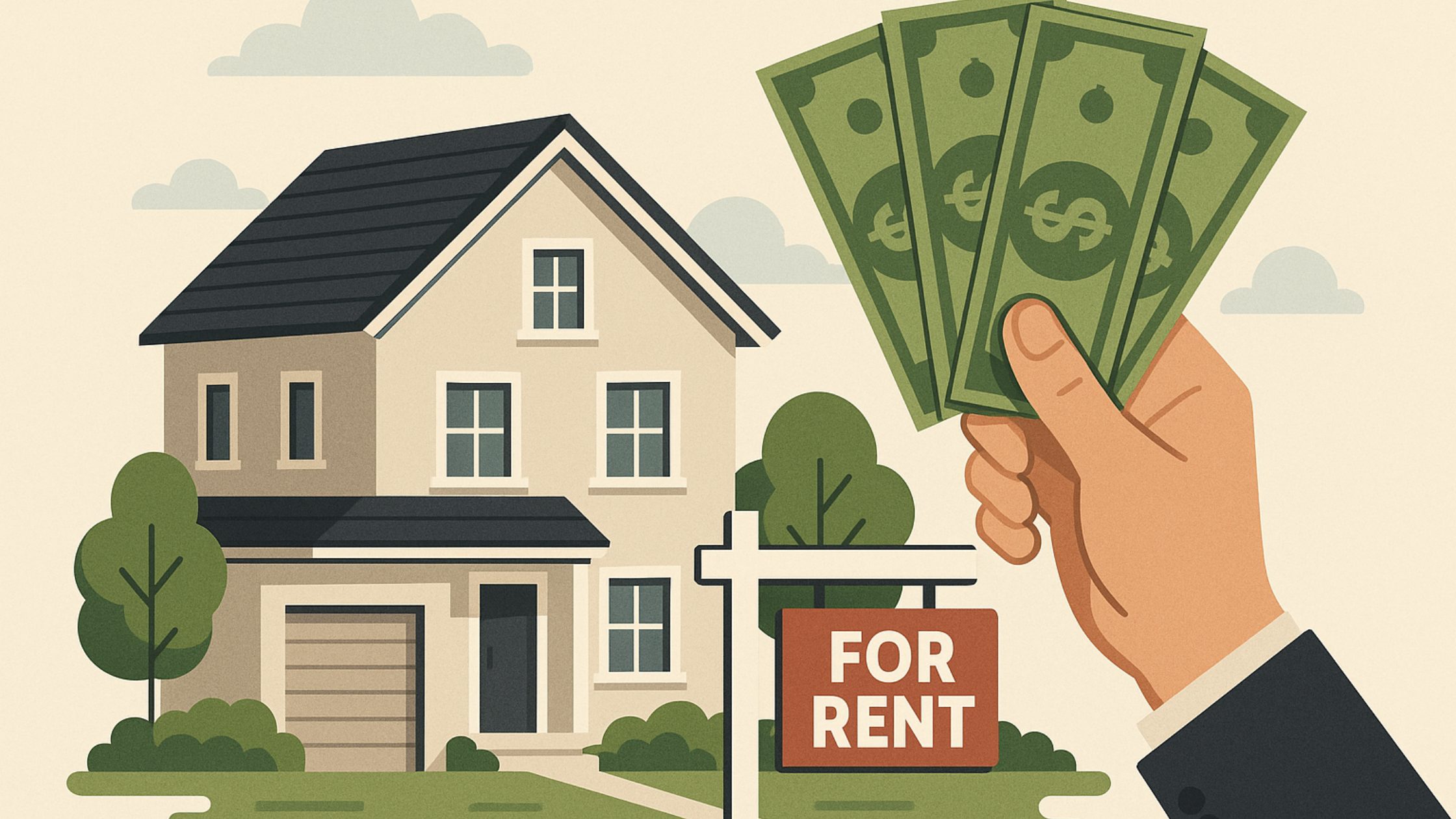
How to Make Money Renting Out a Room or Property: A Guide to Earning Passive Income Through Real Estate
Introduction
In today’s economy, many people are seeking alternative ways to generate income and achieve financial freedom. One proven and increasingly popular method is renting out a room or property. Whether you own an extra bedroom in your home, a second house, or an investment property, the opportunity to turn real estate into a steady stream of income is more accessible than ever.
In this comprehensive, search engine optimized blog post, we’ll explore everything you need to know about making money by renting out a room or property. From legal and financial considerations to marketing and managing tenants, this guide is packed with actionable advice, tips, and insights to help you succeed.
Table of Contents
- Why Renting Out a Room or Property is a Smart Way to Make Money
- Renting vs. Selling: Why Long-Term Income Wins
- Legal and Financial Considerations
- Preparing the Property for Rent
- Setting the Right Rental Price
- Finding and Screening Tenants
- Platforms to List Your Rental Property
- Managing the Rental and Tenants
- Taxes and Deductions
- Tips for Maximizing Profit
- Short-Term Rentals: Airbnb and Vacation Guests
- Common Challenges and How to Avoid Them
- Success Stories
- Final Thoughts: Is Renting Out a Room or Property Right for You?
1. Why Renting Out a Room or Property is a Smart Way to Make Money
Renting out a room or property allows you to generate passive income—money that flows in regularly with minimal day-to-day effort. The real estate market has proven to be one of the most reliable forms of wealth building over time. Unlike other side hustles, renting can be semi-passive or fully passive if managed well.
Key benefits include:
- Steady monthly income
- Property appreciation over time
- Tax advantages
- Low barrier to entry if you already own the space
- Opportunity to scale into a rental business
2. Renting vs. Selling: Why Long-Term Income Wins
Many homeowners consider selling unused property, but renting it out can generate long-term income far exceeding a one-time sale profit. For example, a property that could sell for \$200,000 might generate \$1,500/month in rent. That’s \$18,000 per year—\$180,000 in 10 years—plus the value of the property itself often continues to rise.
If your goal is financial security or building wealth, renting is typically a better long-term strategy.
3. Legal and Financial Considerations
Before you rent out your property, it’s crucial to understand the legal landscape. Here are steps you should take:
Check local zoning laws and regulations:
Some cities or HOA communities have restrictions on rentals, especially short-term rentals like Airbnb.
Get landlord insurance:
This protects you in case of damage or liability issues. Regular homeowners insurance often doesn’t cover rental situations.
Understand tenant rights and landlord responsibilities:
Familiarize yourself with state and local rental laws. Learn about security deposits, eviction procedures, fair housing laws, and lease requirements.
Speak with your mortgage lender (if applicable):
Some mortgage agreements prohibit or limit your ability to rent out the property.
4. Preparing the Property for Rent
Your property needs to be clean, safe, and appealing. Here’s how to get it ready:
- Clean thoroughly or hire a cleaning service.
- Fix any maintenance issues, like plumbing or electrical problems.
- Furnish the space if you’re offering short-term rentals.
- Upgrade lighting, flooring, or paint to attract better tenants.
- Install locks, smoke detectors, and carbon monoxide alarms to meet safety standards.
A little investment upfront can make your rental more desirable and increase your income potential.
5. Setting the Right Rental Price
Pricing your rental correctly is essential. Set the rent too high, and you risk vacancies. Set it too low, and you’re leaving money on the table.
To set a competitive rental price:
- Research comparable listings in your area using sites like Zillow, Rentometer, or Craigslist.
- Factor in amenities, location, square footage, and furnishings.
- Adjust seasonally for short-term rentals (higher in summer, lower in winter in some areas).
- Include utilities if it helps you compete, but adjust the price accordingly.
6. Finding and Screening Tenants
Choosing the right tenant can make or break your rental experience.
Where to find tenants:
- Zillow Rental Manager
- Craigslist
- Facebook Marketplace
- Apartments.com
- Word-of-mouth
Screening tips:
- Require a rental application with background, employment, and references.
- Run a credit check.
- Verify income (2.5–3x the monthly rent is a common benchmark).
- Call previous landlords and ask about their payment history and behavior.
- Conduct a brief interview to ensure they’re a good fit.
Always follow Fair Housing laws and treat all applicants equally.
7. Platforms to List Your Rental Property
Here are the best platforms to get your listing in front of prospective tenants:
- Zillow – Offers broad reach and built-in tenant screening.
- Craigslist – Good for local exposure.
- Apartments.com – Great for multi-unit properties.
- Facebook Marketplace – Excellent for rooms or house shares.
- Airbnb/VRBO – Best for short-term vacation rentals.
- Furnished Finder – Targeted toward traveling professionals.
Each platform has pros and cons, so use multiple to get the best exposure.
8. Managing the Rental and Tenants
Managing a rental property involves several responsibilities:
- Collecting rent
- Handling repairs
- Addressing tenant concerns
- Renewing or ending leases
- Enforcing lease terms
You can manage the property yourself or hire a property management company (usually 8–12% of monthly rent). For many, self-management works well, especially for a single room or one property.
Tools like Cozy, Avail, and Buildium can help automate rent collection and maintenance requests.
9. Taxes and Deductions
Renting out a property has tax implications, but it also opens the door to significant deductions:
- Property taxes
- Mortgage interest
- Maintenance and repairs
- Depreciation
- Insurance
- Utilities (if paid by you)
- Management fees
- Legal or accounting services
Keep detailed records and consider hiring a tax professional to maximize your write-offs and ensure compliance with IRS rules.
10. Tips for Maximizing Profit
To earn more money from your rental, consider the following:
- Offer furnished rentals (especially for short-term or corporate rentals).
- Allow pets (and charge a pet deposit or pet rent).
- Install coin-operated laundry machines if applicable.
- Provide additional services like cleaning or yard maintenance for a fee.
- Use smart home features like keyless entry and thermostats.
- Improve energy efficiency to reduce utility costs.
- Create a positive tenant experience to encourage renewals and reduce turnover.
11. Short-Term Rentals: Airbnb and Vacation Guests
Short-term rentals can be more lucrative per night than long-term leases, especially in tourist-heavy areas. Here’s what to know:
Pros:
- Higher income potential
- More control over the property
- Flexibility to block off dates for personal use
Cons:
- Higher turnover = more cleaning and maintenance
- Local laws may limit short-term rentals
- Seasonality affects occupancy
Use Airbnb, VRBO, or Booking.com to list your space. Invest in high-quality photos, clear house rules, and prompt communication to get great reviews.
12. Common Challenges and How to Avoid Them
Late or missed rent payments:
Prevent with upfront tenant screening and online rent payment systems.
Property damage:
Require security deposits and conduct regular inspections.
Vacancies:
Reduce with competitive pricing, flexible lease terms, and good tenant relationships.
Legal issues:
Stay informed on landlord-tenant laws and consult an attorney if necessary.
Burnout from self-management:
Use software or hire a property manager when you’re ready to scale.
13. Success Stories
Many people have turned real estate into a side hustle or full-time business:
- College students renting a spare room to help pay tuition.
- Retirees turning their vacation home into a seasonal Airbnb.
- Young professionals house hacking—living in one part of a duplex and renting the other to cover the mortgage.
- Digital nomads who rent out their primary home while traveling.
The path may differ, but the results are often the same: increased cash flow and financial freedom.
14. Final Thoughts: Is Renting Out a Room or Property Right for You?
Renting out a room or property can be a highly effective way to earn passive income and grow wealth over time. It’s flexible, scalable, and suited to many lifestyles—whether you’re just starting out or looking to grow a rental business.
By understanding the legal, financial, and practical aspects involved, you can create a reliable income stream while helping others find a place to live or stay. Whether you’re renting a spare bedroom or managing multiple units, the opportunities in real estate are vast—and they’re waiting for you.






